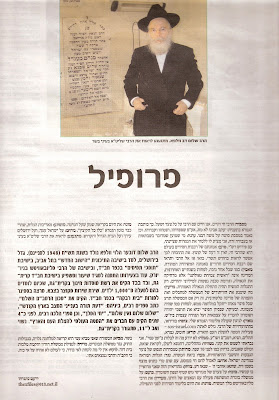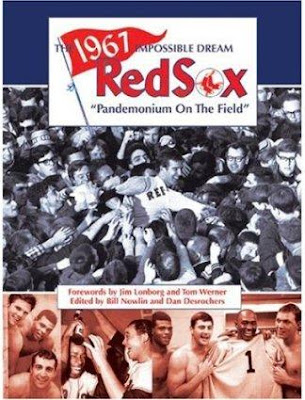In anticipation of Chanukkah, herewith is a revised version of the article I wrote for the local paper:חנוכה: חג לתורה שבעל פה ומסר לדורות
הרב ד"ר יוסף (ג'פרי) וולף
רבות דובר ונכתב אודות חג החנוכה ומשמעותו. אולם, מו"ר הגאון הרב יוסף דוב הלוי סולובייצ'יק זצ"ל חרג מההתמקדות בהתבוללות וחירות פוליטית, והדגיש שמעל הכל חנוכה היא החג של התורה שבעל פה. לכאורה, קביעתו זאת מובנת מאליה. כל כולה של חנוכה מיוסדת על אדני המסורת בעל פה. בניגוד לפורים, היא איננה מוזכרת בתנ"ך. עצם קיומה מבוססת על תקנת חז"ל, עמודי התווך של התושבע"פ. כפי שקובעת הגמרא, שבת דף כ"ג ע"א): והיכן צונו [להדליק נר חנוכה]? רב אויא אמר (דב' י"ז, י"א): 'לא תסור.' רב נחמיה אמר (דברים ל"ב, ז):' שאל אביך ויגדך זקניך ויאמרו לך.'
אם נתעמק בנקודה זו שהעלה הרב זצ"ל, נוכח שגזירות אנטיוכוס ומרד הכהנים בני חשמונאי, גם הווי אבן דרך בהתפתחות התושבע"פ ומספקים לקח חיוני ימינו.
'
בימים ההם בזמן הזה,' 'כשעמדה מלכות יוון הרשעה על עמך ישראל, לשכחם תורתך ולהעבירם מחוקי רצונך,' נתקלו יהודי ארץ-ישראל באתגרים חסרי תקדים בתולדותיהם ובתולדות היהדות ובתולדות האנושות בכלל. גזירות אנטיוכוס היו הרדיפה הדתית הראשונה בתולדותינו (ושמא בתולדות האנושות בכלל). בדרך כלל, תרבויות פגניות לא דרשו שהנמצאים בתחומיהן ינטשו את מורשת אבותיהם לטובת שלהן. הם 'רק' בקשו שאלה יקבלו גם את דתם, לצד דת עצמם. כך, בבית ראשון, פסחו הרבה יהודים על שתי הסעיפים ועבדו גם את הקב"ה וגם את אלהי הארץ. אותו דבר קרה בתחילת השלטון ההלניסטי, תחת המלכים לבית תלמי המצרי, כשהכהנים ובני השכבות העליונות בקשו ליהנות משני העולמות; עבדו עבודת ה' בבהמ"ק בבוקר, והשתתפו בטקסים אליליים אחר הצהרים. אומנם, גישה סינקרטיסטית זו הייתה מסוכנת כשלעצמה. זאת משום שהיא ערערה את יסודות היהדות וזהותה המיוחדת בצורה
שקטה.
'
חידושו' של אנטיוכוס, יחד עם יועציו ועושי דברו היהודים, היה חמור פי כמה. הוא שאף לעקור את היהדות ה-'פרימיטיבית' מהשורש. כנראה שהוא חלם (כמו אדריינוס קיסר מאוחר יותר) לאחד את כל תושבי האימפריה הסלווקית תחת מטריית הקידמה הנאורה מבית מדרשם של חכמי יוון. הוא לא השאיר להם כל מרחב תמרון סינקרטיסטי לטשטש ולהתחמק ולהתפשר. הוא ישר דרש מהיהודים שיבחרו בין ההלניזם לבין המוות. אלא דדא
עקא, לא היה בכלל ברור ליהודים איך היו אמורים להתנהג במצב חסר תקדים כזה.
המשבר היה עוד יותר חריף, כי דווקא בשעה הקשה ההיא שבה היו זקוקים להדרכה דתית ולדעת דעת עליון, הבינו היהודים שהאמצעי החשוב ביותר לחשיפת דבר ד', הנבואה, כבר לא הייתה קיימת ביניהם. לנו, שאת מוסד הנבואה מכירים רק מסיפורי התנ"ך, אינם מבינים את גודל השבר הזה. אולם, מצב זה השאיר את אבותינו מגששים באפילה, ומנע מהם מלקבל כל מיני החלטות. כך, למשל, כשהקימו מחדש את מזבח ה' המחולל, לא ידעו מה לעשות עם אבני המזבח עליהן הקריבו המתייוונים הבוגדים את דבריהם הטמאים ל-'שקוץ משומם' (דניאל י"א, ל"א). לא העיזו להכריע, ושמו אותן בצד 'עד שיבוא נביא צדק ויורה עליהן' (מכבים א ד, מ"ו). דבר דומה אירע כמה שנים מאוחר יותר, כשהמליכו את שמעון החשמונאי למלך עליהם. הצעד היה בעייתי מכל מיני בחינות, אולם ראו בו, בכל זאת כורח השעה. את המעשה ביצעו בידים רועדות ובלב אחוז חרדות, והתנו את תוקפו בביאת 'נביא צדק' (שם, י"ד, מ"א. השווה קידושין דף ס"ו ע"א ורמב"ן עה"ת, בראשית מ"ט, י ודלא כשיטת הרמב"ם).
אולם, היו שאלות שדרשו התייחסות מיידית. הכלי היחיד שנשאר לחכמי ומנהיגי הזמן לגילוי רצון הא-ל הייתה התורה ופירושה לפי המידות שהתורה נדרשת בהן. אולם, השאלות שבהן נאלצו להתמודד היו כבדות מנשוא. תקחו לדוגמא את הדרך הראויה להתנהג בשעת השמד, קרי הלכות קידוש השם. היום, כל בר בי רב דחד יומא יודע ש-'נמנו וגמרו בעלית בית נתזה בלוד: כל עבירות שבתורה אם אומרין לאדם עבור ואל תהרג - יעבור ואל יהרג, חוץ מעבודה זרה וגילוי עריות ושפיכות דמים...לא שנו אלא שלא בשעת השמד, אבל בשעת השמד - אפילו מצוה קלה יהרג ואל יעבור....אפילו שלא בשעת השמד, לא אמרו אלא בצינעא, אבל בפרהסיא - אפילו מצוה קלה יהרג ואל יעבור. (סנהדרין דף ע"ד ע"א). אולם, פסק דין זה הוצא רק כעבור שלוש מאות שנה, בתקופת גזירות אדריינוס קיסר (130- 136 לספה"נ). לכן, על חכמי התקופה נפלה האחריות הכבידה לדון ולהורות הלכה למעשה, לפי הכלים ההלכתיים והפרשניים שבידיהם ומתוך רגש של יראת שמים ואחריות לאומית, מתי יהודי יקריב את חייו ויתעלם מקביעת המסורת, 'וחי בהם, ולא שימות בהם' (ספרא אחרי מות פרשה ט, סעיף י"ג, י"ג). ללא היה נביא שיאשר את החלטתם וללא אורים ותומים שבהם אפשר היה להתייעץ (השווה סוטה מח ע"ב), אזרו חכמי התקופה עוז בגדר 'לא דבר רק הוא מכם,' – 'אם רק הוא מכם לפי שלא התבוננתם בו ופלפלתם בטעמו כהוגן' (מדרש תנאים, דברים פרק ל"ב, מ"ז). הם ישבו על המדוכה ופסקו הלכה למעשה שמצוה למות ולא לעבוד עבודה זרה או לבטל ברית מילה. היה בזה סיכון עצום, שמא טעות תעלה בידם. למרות זה, על אף כל ולמרות כל, התמידו והורו לפי מיטב הבנתם.
אפילו קביעת חנוכה בתור חג חובה, הכולל מצוה מדרבנן, הייתה צעד נועז. הרי, לפי חז"ל, גם את בקשת אסתר המלכה לא רצו אנשי כנסת הגדולה לקבל (מגילה דף ז ע"א). 'שלחה להם אסתר לחכמים: קבעוני לדורות! שלחו לה: קנאה את מעוררת עלינו לבין האומות. שלחה להם: כבר כתובה אני על דברי הימים למלכי מדי ופרס.' כאן, המשימה הייתה קשה עוד יותר. את נס חנוכה הצבאי, היה אפשר לפרשן כעוד נצחון של צבא גרילה על צבא סדיר מסורבל, שבו זמנית נאלץ להתמודד עם איומים במזרח (הפרסים) ובמערב (צבא הרפובליקה הרומאית). את נס פך השמן אף אחד לא ראה, חוץ מכמה כהנים. זו"ע, נאלצו החכמים שבאותו דור להכריע ולקבל אחריות בתוקף תפקידם, אליו מינתה אותם התורה, לקבוע שיש מקום להוסיף מועד ללוח העברי לציון אירוע היסטורי שחסר כל המרכיבים הנסיים הגלויים הקיימים במועדים הנזכרים בתורה. את זה הם עשו, מתוך אמונה עמוקה ביד ה' הפועלת המסווה טבעי. בזה הם קבעו את פרמטרים של התורה שבעל פה לדורות: שילוב של יראת שמים, יראת הוראה, דחף להורות, גבורה ואמונה ש(כדברי הרב זצ"ל) 'זאת התורה אפשר ליישמה בכל מקום, בכל עת ובכל הנסיבות.'
הרב סולובייצ'יק זצ"ל תמיד הדגיש שהתורה איננה יכולה להתקיים בלי מעשי גבורה מצד לומדיה. גבורה מחייבת הקרבה אישית, מוכנות להסתכן וקבלת אחריות אישית לשאת בתוצאות. זהו הלקח של חנוכה ויש בו, בתקופה הנוכחית, מיסר מאד אקטואלי. עומדים בפני הציבור היהודי בארץ אתגרים חסרי תקדים והקף. אותם אתגרים (הלכתיים, תרבותיים, חברתיים ופוליטיים) אינם רק מנת חלקם של מגזר דתי כלשהו, אלא של כלל הציבור המזדהה כיהודי בעל זיקה חיובית למורשת אבותינו (שהם כ-80% מהיהודים בארץ לפי המחקר האחרון). הם מחייבים התייחסות נועזת וגבורה עילאית. הם מחייבים שיתוף פעולה בין הגורמים והפלגים בעם (בדיוק כמו שהחסידים שיתפו פעולה עם החשמונאים ואחרים בהתנגדותם לאנטיוכוס ולמתייוונים בקרב היהודים). מעל הכל, הם מחייבים את כלל הציבור היהודי להתכחש לחושך המאיים עליו, ולהחליפו באור הגנוז בתורתנו ובתוך עצמנו. יה"ר שהיא תעמוד לנו בימים הבאים.











